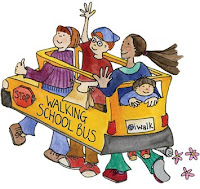
What Is The School's Role In Helping A Child With Attention Deficit?
In 1991, the U.S. Department of Education approved children who were diagnosed with ADD/ADHD to be protected by federal law that provided them with a “free appropriate public education” under Section 504 of the Rehabilitation
 Act of 1973. This federal act protects the civil rights of persons with disabilities, including ADD/ADHD. The phrase “free and appropriate” refers to a public school education that meets the needs of an ADD/ADHD child at no cost to the parents.
Act of 1973. This federal act protects the civil rights of persons with disabilities, including ADD/ADHD. The phrase “free and appropriate” refers to a public school education that meets the needs of an ADD/ADHD child at no cost to the parents.This means that if the child is to be removed from his or her peers that it is done so during the portion of general education that cannot be met in the regular classroom setting. This setting is also called “mainstream.” Section 504 children do not qualify for special education services that fall under IDEA (Individuals with Disabilities Act). Children with learning disabilities have an Individual Education Plan (I.E.P.) that is developed by the school Child Study Team and Parents to ensure that LD children receive appropriate accommodations to help them learn.
Children who have been diagnosed with ADD/ADHD may have a 504 Plan (when they do not qualify for special education services) that may make “reasonable” accommodations to meet the child’s academic needs. A medical professional must diagnose children who qualify for a 504 plan with chronic or acute ADD/ADHD. The diagnosis must prove that the child’s ADD/ADHD has adverse effects on educational performance, including grades, behavior, social issues or impaired work skills.
Some examples accommodations that may be included in a 504 Plan are listed below.
* Impulsiveness: The child may sit in the from row of class and be allowed extra time to complete assignments.
* After your child has been diagnosed teacher will give positive reinforcement (verbal praise) when the child raises his hand.
* Motor Activity: The child will be allowed to leave his seat, walk to the back of the room without making classroom disruptions in place of bothering students by him. The child will also be allowed to stand next to his desk while working on assignments after the teacher is done presenting.
* Organization: The child will be allowed extra time to complete notes provided by the teacher. The child may keep a second textbook at home.
* Behavior and School Rules: When the child is acting out in class, the child may be warned once for his behavior and then sent to see the school counselor o psychologist to discuss behavior. The child will be allowed back in class when the counselor or psychologist deems ready to return. The child will be expected to follow all school rules. Parents, school administrators and teachers will review school rules with the child.
* Student Talents: Teachers and other school employees who work with the child will encourage the child to participate in physical and social activities that promotes movement and social well being.
* Academics: The child will be allowed extra time to complete test. Teachers will post assignments on their WebPages as a form of communication. Parents and teachers will e-mail ach other at least once a week if necessary.
These are examples of 504 plans. Your school may have specific 504 forms, permission slips and other materials to provide parents. After your child has been diagnosed with ADD/ADHD, the school administrator, psychologist or counselor will help you get started.
Note: Many special education children have been diagnosed with ADD/ADHD. When this occurs, the child’s I.E.P. (Individual Education Plan) will make accommodations for the disorder. It’s important to also note that ADD/ADHD may fall under the heading OHI (Other Health Impaired). OHI falls under the special education umbrella and IDEA.
Should I let My Child’s Teacher(s) Know That My Child Is ADD/ADHD?
Some parents choose not to let their child’s teachers know that they have been diagnosed with ADD/ADHD. This typically occurs and the beginning of the school year and the parents want to see if the child has made improvements from the previous school year. It is very rare that a child who has been diagnosed with ADD/ADHD makes significant gains throughout the summer to the point where his or her new teachers do not notice the disorder.
Children are rarely good at hiding their ADD/ADHD. If you choose to keep this information from your child’s teachers, they will most like be calling after the first two or three weeks of the beginning of the school year. Why wait? Let the teachers, school nurse and others working with your child know about the diagnosis, recommended medical interventions (medications, behavioral plan and treatments) so that the school can implement appropriate plans as well. Remember, ADD/ADHD is not about your child’s “good or bad” character, it’s about a disorder. Most parents would not hesitate in asking if their child is wearing his or her glasses in class due to a sight disorder. Why hesitate in sharing the diagnosed disorder of ADD/ADHD?